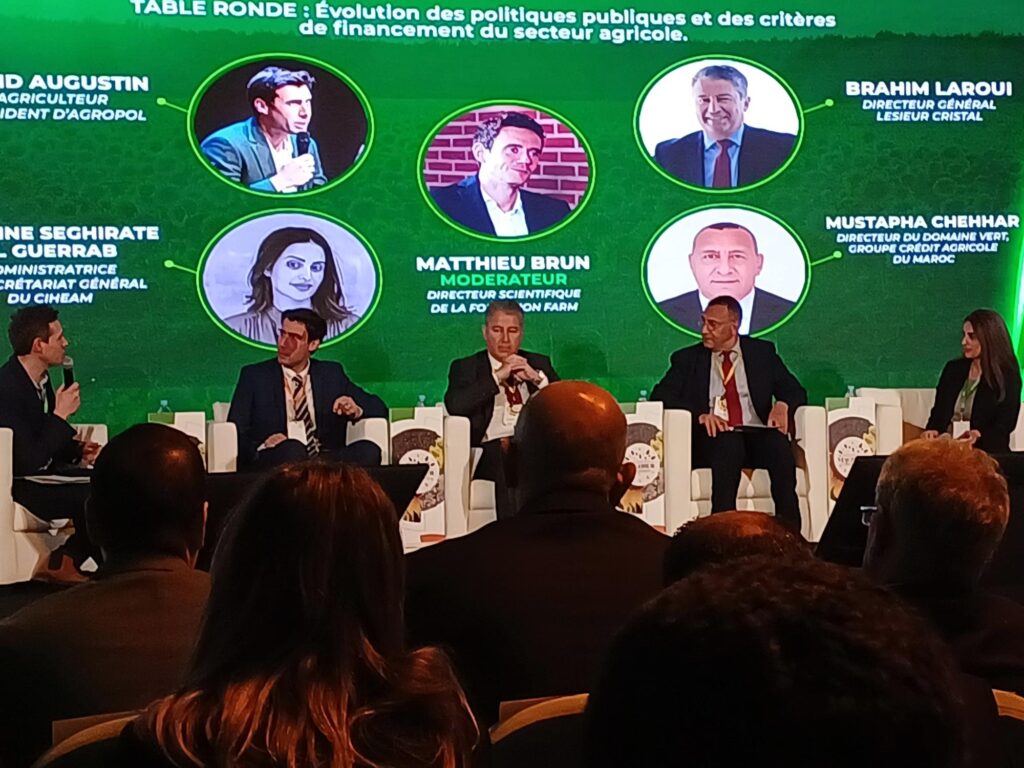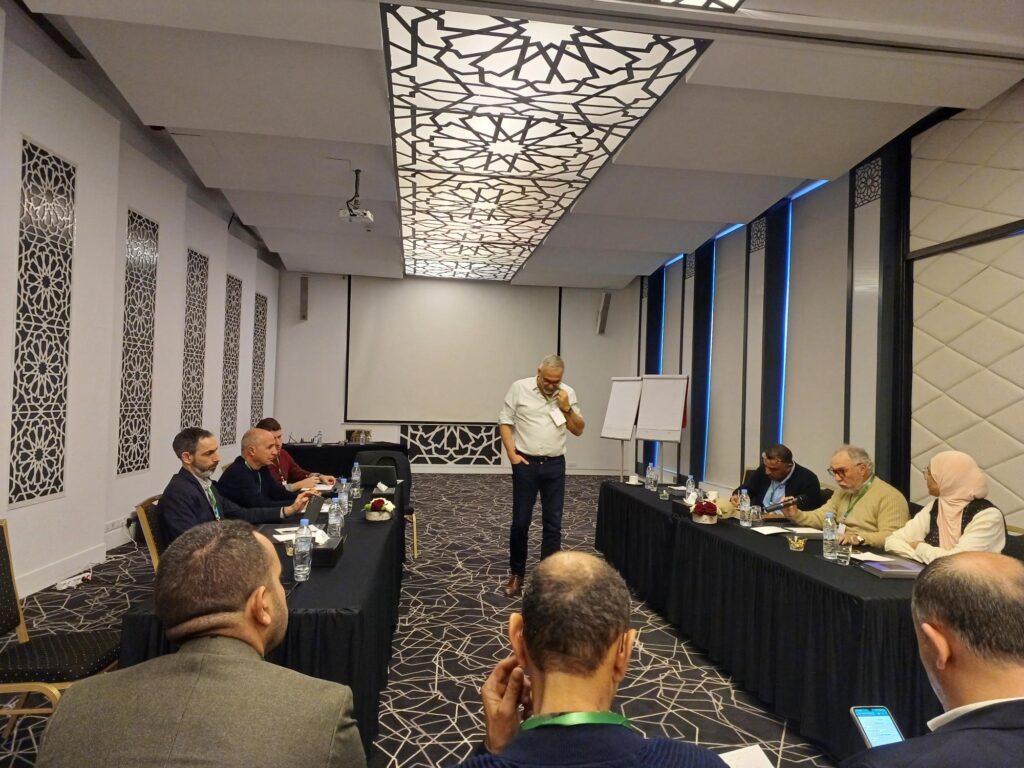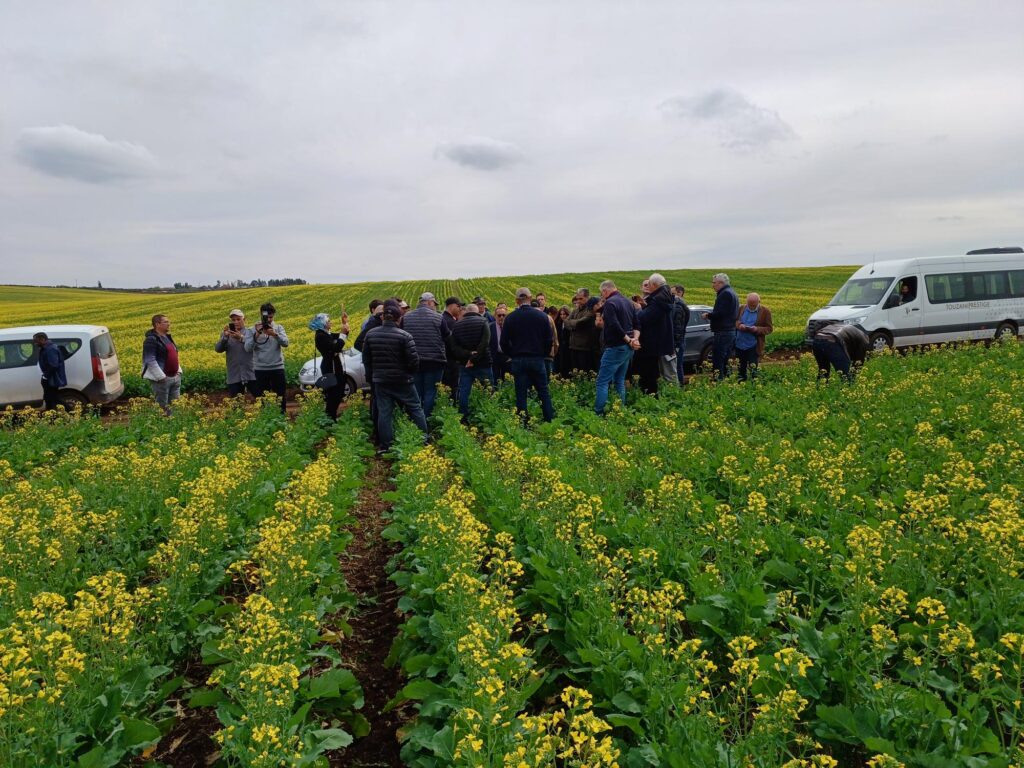The ICARDA’s CARINA team recently took part in the second edition of the Maghreb Oilseeds Meetings (RMO) on March 5 and 6 in Rabat, Morocco. Organized by the Interprofessional Federation of Oilseeds (FOLEA), along with the French Association for the International Development of Vegetable Oils and Proteins (Agropol), Lesieur Cristal, and various other organizations, the event provided a vital platform for addressing the challenges facing the agricultural sector amidst climate change and exploring the opportunities presented by oilseed crops.

Delegates from France, Morocco, Algeria, and Tunisia, representing key stakeholders in the oilseed sectors such as farmers, farmer organizations, oil-producing companies, research and extension organizations, banks, and industry representatives, participated in the event. It served as a unique forum for sharing expertise, experiences, and forging strategic alliances and innovative collaborations.
The event was characterized by engaging debates, informative sessions, field visits, workshops, and seminars led by renowned experts in the field. Key themes included “Oilseeds, levers of resilience of production systems in the face of climate change?” and “Farmers, industrialists, and breeders: how to work in a sector to cope with an uncertain environment?”

During the discussions, ICARDA’s team highlighted the importance of ancient oilseed crops like Camelina in adapting to climate change and promoting crop rotation in cereal-based cropping systems, particularly in marginal areas. A round table explored the role of oilseed sectors in resilience to climate change and food sovereignty issues in the Maghreb.
As part of the meeting, a field visit to rapeseed fields was organized in the Meknes area on March 5, 2024, to showcase the significance of oil crops in crop rotation and share oilseed producers’ experiences in Morocco with the delegates.

SUBSCRIBE TO A NEWSLETTER
Funded by the European Union. Views and opinions expressed are however those of the author(s) only and do not necessarily reflect those of the European Union or the European Research Executive Agency. Neither the European Union nor the granting authority can be held responsible for them.